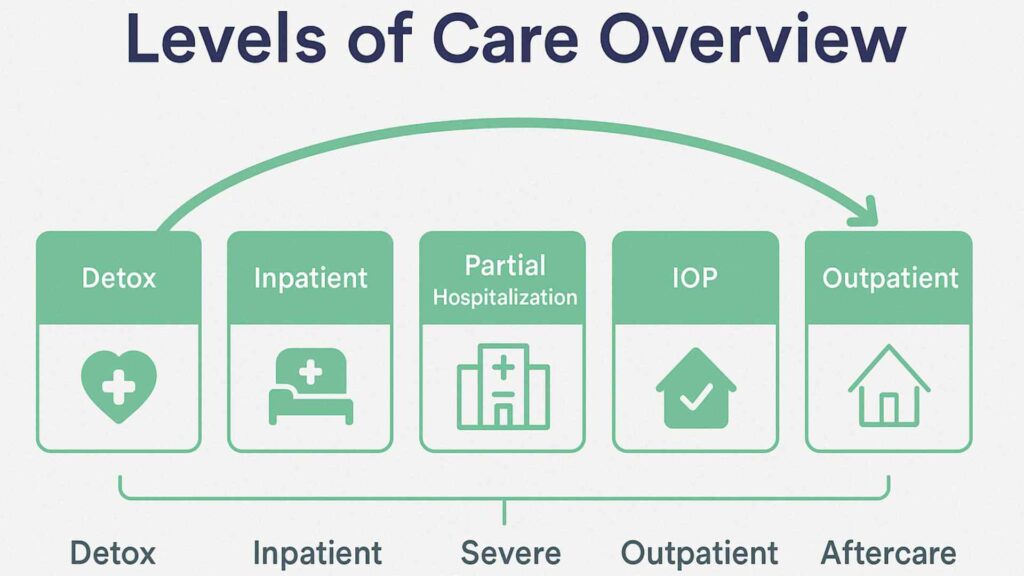Addiction recovery involves multiple paths, each designed to support individuals at different stages of their journey. Among these options, sober living and residential treatment are two widely recognized approaches. While both contribute to sustained sobriety, they serve distinct purposes and operate in very different ways.
In this article, we will explore the key differences between sober living and residential treatment. We will examine their unique structures, goals, and roles within the broader recovery process, helping you better understand which option might be most suitable depending on individual needs.
Understanding Residential Treatment
Residential treatment is a highly structured, intensive form of addiction care. It typically involves living full-time at a specialized facility where individuals receive around-the-clock support and medical supervision. These programs focus on detoxification, therapy, and stabilization during the initial and most critical phases of recovery. Residential treatment usually lasts from several weeks to a few months, depending on individual needs and the severity of addiction.
The environment in residential treatment is controlled and therapeutic. Patients participate in daily group and individual counseling sessions, behavioral therapies, and sometimes medication management. The goal is to address the physical, psychological, and emotional aspects of addiction in a safe, supportive setting. Because of the constant professional oversight, residential treatment is often necessary for individuals with severe substance use disorders or co-occurring mental health conditions.
What Is Sober Living?
Sober living, by contrast, offers a transitional, supportive living arrangement for individuals who have completed more intensive treatment or are seeking a structured environment to maintain sobriety. Unlike residential treatment, sober living homes are less clinical and more communal. Residents live together in a home-like setting that encourages accountability and peer support.
Sober living emphasizes personal responsibility and daily routines that promote sober habits. Residents often hold jobs or attend school and are expected to adhere to house rules such as abstaining from drugs and alcohol and participating in regular house meetings. While some sober living homes may offer optional counseling or recovery meetings, they typically do not provide medical or therapeutic services onsite. This setting provides the flexibility needed to reintegrate into everyday life while still maintaining a foundation of sobriety.

Key Differences in Treatment Goals and Structure
The primary distinction between sober living and residential treatment lies in their treatment goals and structural intensity. Residential treatment serves as the initial, intensive phase of recovery, focusing on stabilization, detox, and therapy under professional supervision. It requires a highly controlled environment with strict schedules and clinical interventions.
In contrast, sober living serves as a bridge between residential treatment and independent living. It supports individuals who are medically stable and ready to take on more responsibility in their recovery journey. Unlike residential treatment, sober living is peer-driven rather than staffed by clinical professionals. The rules are generally less strict but still enforce accountability and sobriety.
Another key difference is flexibility. Residential treatment programs follow rigorous timetables, while sober living homes offer residents the freedom to work, attend school, or pursue other commitments. This transition allows residents to practice the skills necessary for independent living in a supportive yet less restrictive environment.
The Role of Sober Living in Long-Term Recovery
Sober living plays a crucial role in long-term recovery by facilitating the gradual reintegration of individuals into daily life without substances. It provides a stable, drug-free environment where residents can develop essential life skills such as managing finances, maintaining employment, and building healthy relationships. The communal nature of sober living fosters peer support and accountability, which are vital to sustaining sobriety.
Without the structured clinical interventions of residential treatment, sober living emphasizes empowerment. Residents learn to navigate real-world challenges while surrounded by others committed to the same goal. This environment reduces the risk of relapse by providing ongoing social support and encouraging positive routines that reinforce sobriety.
Choosing Between Sober Living and Residential Treatment
Deciding whether sober living or residential treatment is appropriate depends on several factors, including the severity of addiction, physical health, mental health needs, and existing support systems. Residential treatment is essential for those requiring medical detoxification or intensive therapy to address complex addiction and mental health issues.
Sober living is better suited for individuals who have completed residential treatment or who have a lower level of addiction severity but still benefit from a structured, supportive environment. It complements residential treatment by offering a necessary transitional phase, helping individuals maintain their progress while preparing for independent life.
Final Thoughts from Abundance Treatment
At Abundance Treatment, we recognize that recovery is a personal journey requiring flexible, evidence-based support. Our programs in Toledo provide structured care tailored to the needs of both adults and adolescents. By combining evidence-based & clinical approaches, we help clients build resilience and sustain long-term sobriety. This approach ensures accessible and personalized treatment that supports lasting growth and connection throughout recovery.





































